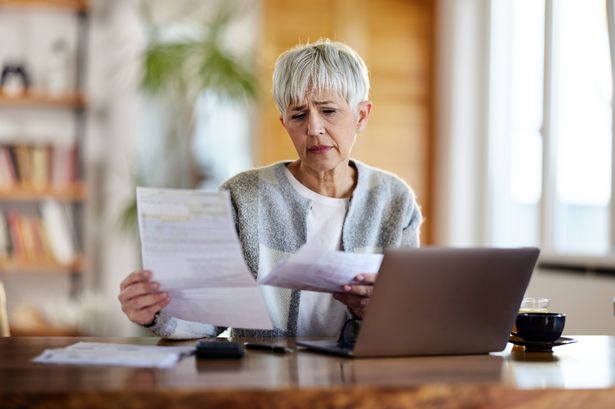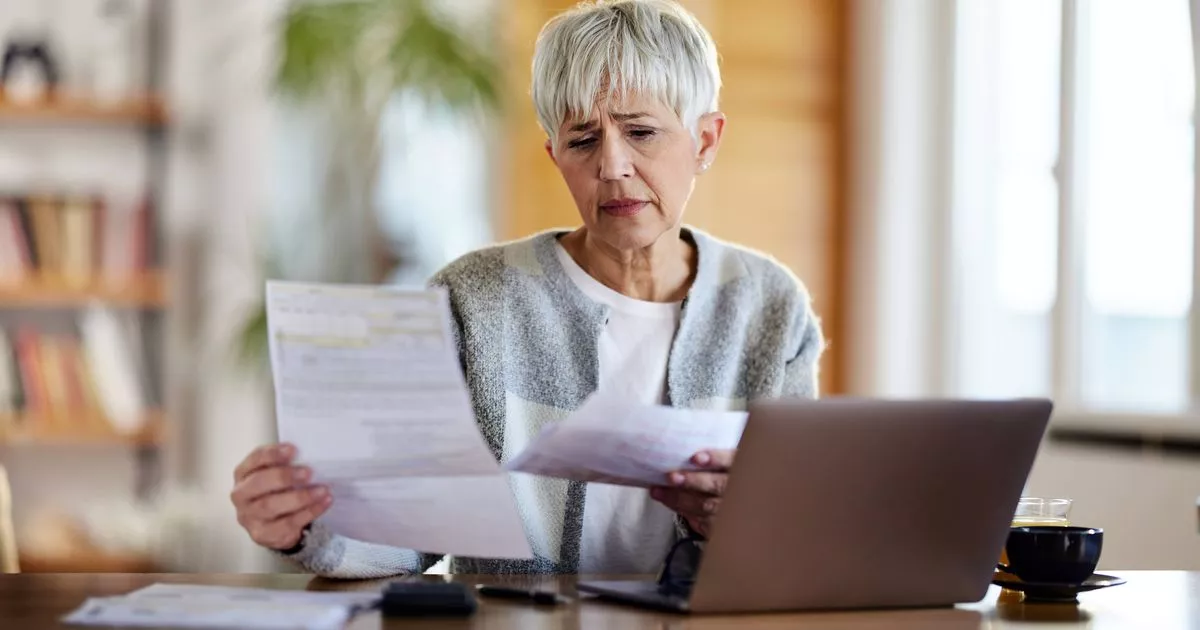

A document produced by Independent Age examines past Basic State Pension underpayments and encourages recipients who may have been entitled to National Insurance (NI) ‘top-ups’ to contact the Pension Service requesting a recalculation if they suspect their State Pension amount is incorrect.
Research conducted by Independent Age revealed that 41% of people aged 50 and above felt worried about their post-retirement finances. Nearly half admitted lacking substantial understanding of available financial options, including the State Pension, following retirement, reports the Daily Record.
Independent Age guidance explains: “If you qualify for Basic State Pension and can claim State Pension ‘top-ups’, these are usually calculated for you. But some people – particularly women who paid reduced NI rates – may have had their State Pension miscalculated and underpaid.
“If you think this affects you, contact the Pension Service to ask them to recalculate your State Pension. You can do this whether you’re claiming or delaying your State Pension. You can also contact our helpline to arrange to speak to an adviser.”
The complete State Pension help guide can be accessed on the Independent Age website here. Alternatively, you can ring them directly on 0800 319 6789.
State Pension historical mistakes
The Department for Work and Pensions (DWP) has revealed that between January 8, 2024 and March 31, 2025, a collaborative State Pensions corrections initiative with HM Revenue and Customs (HMRC), uncovered 12,379 State Pension underpayments to women whose National Insurance (NI) records contain errors.
In 2022, the DWP discovered numerous State Pension cases where it seemed that historical periods of Home Responsibilities Protection (HRP) were absent, resulting in incorrect State Pension payments. To date, approximately £104 million in back payments have been distributed, with an average settlement of £8,377.
Retirement specialist Helen Morrissey is encouraging elderly people to fill out the online form or get in touch with the Pension Service if they believe they have been impacted. This is after new research from the DWP shows the main reasons why those who have received a letter from HMRC asking them to check their State Pension as it could be wrong – have failed to do so.
HMRC has dispatched over 370,000 letters, predominantly to women, encouraging them to review their State Pension payments as they may be lower than what they are entitled to. However, research from the DWP suggests that the majority of people who received a letter did not proceed to apply for HRP.
The barriers included:
- Not understanding the letter
- Thinking the communication was a scam
- Reliance on digital methods to put in a claim
HRP was a scheme intended to safeguard the State Pension entitlements of parents and carers, which was superseded by NI credits from 6 April 2010. HMRC is utilising NI records to identify as many people as possible who may have been eligible for HRP between 1978 and 2010 and do not have HRP on their NI record.
After May 2000, it became compulsory to include a NI number on claims, so those claiming after this point will not have been affected.
How to utilise the online HRP tool
You may still be able to apply for HRP, for full tax years (6 April to 5 April) between 1978 and 2010, if any of the following were true:
- you were claiming Child Benefit for a child under 16
- you were caring for a child with your partner who claimed Child Benefit instead of you
- you were getting Income Support because you were caring for someone who was sick or disabled
- you were caring for a sick or disabled person who was claiming certain benefits
You can also apply if, for a full tax year between 2003 and 2010, you were either:
- a foster carer
- caring for a friend or family member’s child (‘kinship carer’) in Scotland
Who qualified automatically for HRP
The guidance on GOV.UK explains that most people got HRP automatically if they were:
- getting Child Benefit in their name for a child under the age of 16 and they had given the Child Benefit Office their National Insurance number
- getting Income Support and they did not need to register for work because they were caring for someone who was sick or disabled
If your partner claimed Child Benefit instead of you
If you reached State Pension age before April 6, 2008, you cannot transfer HRP. However, you may be able to transfer HRP from a partner you lived with if they claimed Child Benefit while you both cared for a child under 16 and they do not need the HRP.
They can transfer the HRP to you for any ‘qualifying years’ they have on their National Insurance record between April 1978 and April 2010. This will be converted into National Insurance credits.
Married women or widows
You cannot get HRP for any complete tax year if you were a married woman or a widow and:
- you had chosen to pay reduced rate Class 1 National Insurance contributions as an employee (commonly known as the small stamp)
- you had chosen not to pay Class 2 National Insurance contributions when self-employed
If you were caring for a sick or disabled person
You can only claim HRP for the years you spent caring for someone with a long-term illness or disability between April 6, 1978 and April 5, 2002. You must have spent at least 35 hours a week caring for them and they must have been getting one of the following benefits:
- Attendance Allowance
- Disability Living Allowance at the middle or highest rate for personal care
- Constant Attendance Allowance
The benefit must have been paid for 48 weeks of each tax year on or after April 6, 1988 or every week of each tax year before April 6, 1988. You can still apply if you are over State Pension age. You will not usually be paid any increase in State Pension that may have been due for previous years.
If you were getting Carer’s Allowance
You do not need to apply for HRP if you were getting Carer’s Allowance. You’ll automatically get National Insurance credits and would not usually have needed HRP.
If you were a foster carer or caring for a friend or family member’s child
You have to apply for HRP if, for a full tax year between 2003 and 2010, you were either:
- a foster carer
- caring for a friend or family member’s child (‘kinship carer’) in Scotland
All of the following must also be true:
- you were not getting Child Benefit
- you were not in paid work
- you did not earn enough in a tax year for it to count towards the State Pension
If you reached State Pension age on or after 6 April 2010
Any HRP you had for full tax years before April 6, 2010 was automatically converted into National Insurance credits, if you needed them, up to a maximum of 22 qualifying years. A full overview of HRP can be found on GOV.UK here.

